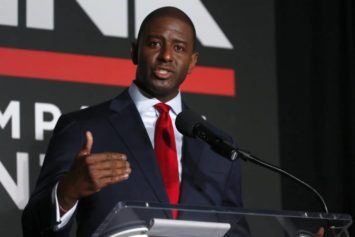
Terry J. Albury, 39, a former FBI counterterrorism expert working in the Minneapolis field office, pleaded guilty in a federal court in St. Paul to one count of unauthorized disclosure of national defense information and one count of unauthorized retention of national defense information. Albury faces a sentence likely ranging from 37 to 57 months, with his fate ultimately resting in the hands of U.S. District Judge Wilhelmina Wright, an African-American appointee of President Obama.
At issue are classified documents that Albury allegedly leaked to an unnamed news organization between February 2016 and January 31, 2017, concerning how the FBI assesses confidential informants, and a document “relating to threats posed by certain individuals from a particular Middle Eastern country.” The whistleblower is also charged with failing to turn over a document “relating to the use of an online platform for recruitment by a specific terrorist group.” The information corresponds to stories published by The Intercept on secret FBI guidelines for potential informants. Albury reportedly knew it was illegal to share the information but was troubled by the manner in which the FBI treated minority communities, which he regarded as “suspicion” and “disrespect.”
His attorneys issued a statement saying Albury acted out of “conscience,” and was troubled by racism in the bureau, which he believed reflected a white-male-dominated culture and impacted the FBI’s interactions with communities of color.
“Terry Albury served the U.S. with distinction both here at home and abroad in Iraq. He accepts full responsibility for the conduct set forth in the Information. We would like to add that as the only African-American FBI field agent in Minnesota, Mr. Albury’s actions were driven by a conscientious commitment to long-term national security and addressing the well-documented systemic biases within the FBI,” read the statement. “The situation became even more acute for him when, having previously served a tour for the FBI in Iraq, he was assigned to the counterterrorism squad and was required first-hand to implement FBI investigation directives that profiled and intimidated minority communities in Minnesota and other locations in which Terry served,” read the statement. The FBI Minnesota field office focused much of its work on the state’s large Somali-American community, which numbers 85,000 and is the largest Somali community in North America, if not outside of the African continent, and is the heart of the Somali diaspora. The community has become a target of violence from white domestic terrorists.
Some Somali men from Minnesota have faced charges and convictions for terrorism and joining ISIS. On the eve of the 2016 election, Donald Trump referred to the Somali immigrants as a “disaster” for Minnesota and the result of “faulty refugee vetting.” The Albury plea deal reflects the focus by the Trump administration and U.S. Attorney General Jeff Sessions to clamp down on leaks of classified government information, an effort which could ensnare journalists.
According to the secret FBI rules The Intercept published, the federal agency bypasses its own rules to send undercover agents and informants to monitor and sometimes influence the First Amendment-protected activities of groups such as religious institutions, political groups, schools, businesses, and clubs. The attendant threat to civil liberties evokes memories of the FBI’s COINTELPRO program, which infiltrated, discredited and disrupted civil rights organizations and their leaders.
Despite rules against racial profiling, the FBI — which has retained most of its racial profiling policies and even expanded profiling beyond race and ethnicity to include gender identification, national origin, religion, and sexual orientation — enjoys wide discretion in targeting people based on race and religion. The profiling policies reflect FBI pushback against any efforts made under former Attorney General Eric Holder to ban discrimination in counterterrorism investigations, according to The Intercept.
Under the secret FBI rules, the bureau coordinates with immigration enforcement authorities to locate informants who are no longer of use to the feds and deport them. Under this blurring of the lines between FBI and ICE, the bureau uses immigration status as leverage against potential Muslim recruits. This stands in contrast to the FBI’s insistence that informants’ participation is voluntary.
A throwback to the days of J. Edgar Hoover and COINTELPRO, agents in the U.S. are able to use methods to obtain informants and gather intelligence that are more commonly associated with foreign intelligence agencies. For example, FBI agents may use undercover identities, recruit minors, use covert means to recruit informants online, build a file on potential informants for purposes of coercing unwilling recruits, and allow informants to operate in foreign countries without notifying the host nation. The FBI rules also allow the feds to spy on journalists without informing the news organization being targeted or going to a judge for permission.
The FBI is the least diverse law enforcement agency in the federal government, reflecting the overall problem of Black and Brown underrepresentation among police forces and its impact on strained relationships in nonwhite communities. FBI special agents are more than 83 percent white, with Blacks, Latinos and Asians each in the single digits. Representation among Black agents has been in decline over the past few decades. Black and Latino agents have filed several lawsuits against the bureau alleging a “dual-track” system of employment in which whites hired and promoted whites almost exclusively. The FBI pledged to turn things around but has not done so.
The recent revelations from the former Black FBI agent amid accusations of racism contextualize the decision by the bureau to focus attention on so-called “Black Identity Extremists.” The bureau coined the phrase and prepared a report claiming said group is a domestic terror threat and a threat to law enforcement for targeting police officers. Black leaders, lawmakers and activists have accused the bureau of attacking the free speech rights of Black Lives Matter and criminalizing other peaceful anti-police violence activists and protesters and racial justice movements. This despite the predominance of white domestic terrorism in the United States, and the white extremist infiltration of law enforcement, of which the FBI is aware.
The specter of Hoover and COINTELPRO continues to haunt the FBI, with Agent Albury only fueling and vindicating suspicions toward the agency throughout the Black community.


